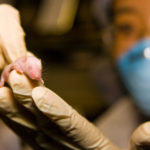
Monthly survey to gauge the mental health of the UK under coronavirus
A mental health charity has teamed up with universities across the UK to monitor the country’s psychological wellbeing. For accurate and up to date information on coronavirus please go to gov.uk/coronavirus. If you’re outside the UK please see the information on coronavirus from your national and local authorities. The Guardian reports they will conduct monthly … Continue reading Monthly survey to gauge the mental health of the UK under coronavirus

E-cigarettes don’t normalise smoking for young people
Young people’s views about smoking have continued to become more negative since the introduction of e-cigarettes, according to a study led by Cardiff University researchers. Cardiff University says the analysis, which was conducted in collaboration with colleagues from Edinburgh, Stirling, Glasgow and Bristol Universities, focused on three national surveys containing the views of 248,324 people … Continue reading E-cigarettes don’t normalise smoking for young people

Discreet contraception for the world’s poorest countries
Innovative microneedle technology is being developed as an effective, pain free and discreet method of delivering contraception across the world’s poorest countries, thanks to a new research consortium led by Cardiff University and supported by the Bill & Melinda Gates Foundation. Cardiff University said the project will focus on pre-clinical work to develop microneedle patches … Continue reading Discreet contraception for the world’s poorest countries

Improved access to DNA from endangered species
Scientists will have improved access to DNA from endangered species, thanks to the development of the UK’s first national zoological biobank. The CryoArks Biobank, led by Professor Mike Bruford from Cardiff University, is a major investment towards cryogenically preserving genetic materials for conversation and research. As the UK’s first national zoological biobank, Cardiff University reports … Continue reading Improved access to DNA from endangered species

Using HIV data to improve clinical outcomes
£11m has been awarded to eleven projects by the Engineering and Physical Sciences Research Council (EPSRC) to further the understanding of trust, identity, privacy and security (TIPS) issues in the digital economy. The University of Bristol reports one of the eleven projects selected is INTUIT, a study that aims to identify and address fundamental TIPS … Continue reading Using HIV data to improve clinical outcomes

Revolution in the understanding of depression
For the first time scientists around the world, with leading contributions from the UK’s world class centres of psychiatric genetics research, largely funded by the Medical Research Council, at Cardiff University, the University of Edinburgh and King’s College London, have been able to combine DNA data on a large enough sample to pinpoint which locations … Continue reading Revolution in the understanding of depression

Enigmatic gene crucial to healthy brain development
New research has shown how an unusual gene is needed for brain development in young mice. Since the human genome was first sequenced in 2001, scientists have puzzled over swathes of DNA that despite apparently lacking function are made into ribonucleic acid (RNA) by the cell. The University of Bath reports its scientists, along with … Continue reading Enigmatic gene crucial to healthy brain development

Understanding the immunobiology of wild mammals
A team of British scientists, led by the University of Bristol, have made a significant step forward in understanding the immunobiology of wild mammals. The state of the immune system of wild animals is almost unknown. However, knowing this and knowing what affects the immune state of wild animals is important in understanding how infection … Continue reading Understanding the immunobiology of wild mammals

Study challenges evidence for proactive reading brain
A scientific team led by the Max Planck Institute for Psycholinguistics in the Netherlands, supported by scientists from the University of Bristol, has demonstrated that the predictive function of the human language system may operate differently than the field has come to believe in the last decade. Dr Mante Nieuwland, Cognitive Neuroscientist at the Max … Continue reading Study challenges evidence for proactive reading brain

£1.5m award to improve pancreatic cancer treatments
University of Liverpool scientists have been awarded £1.5m by Cancer Research UK to help boost understanding about pancreatic cancer, one of the deadliest cancers. The University of Liverpool reports its Institute of Translational Medicine is leading the study and will analyse tissue and blood samples from people with pancreatic cancer treated at Royal Liverpool Hospital … Continue reading £1.5m award to improve pancreatic cancer treatments








